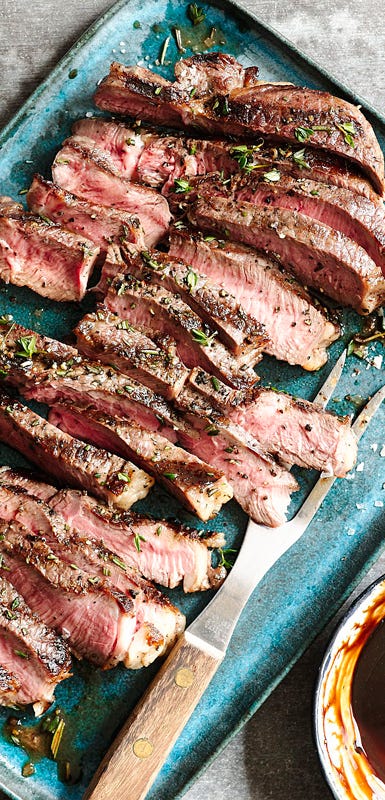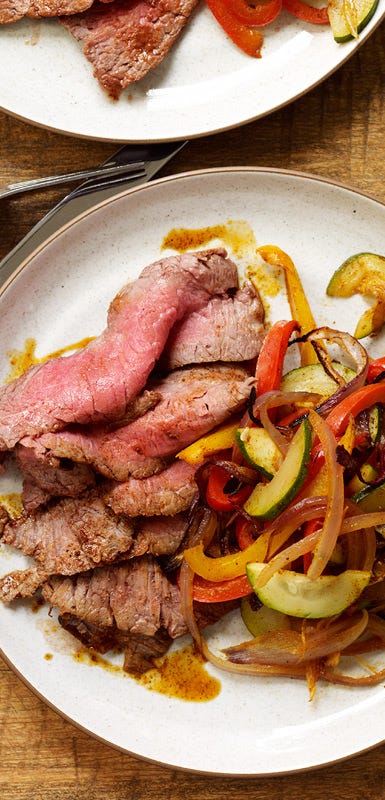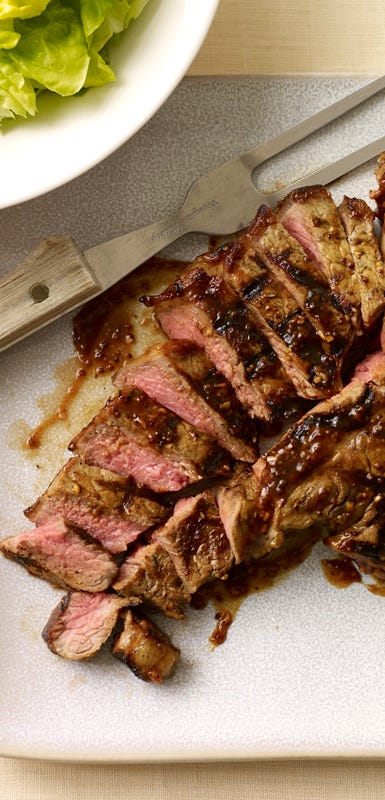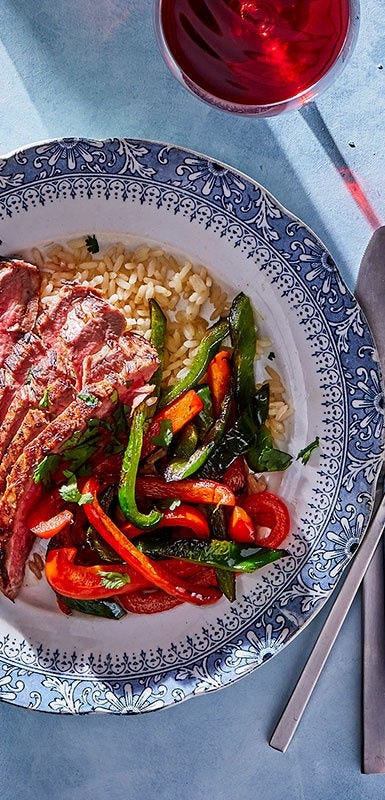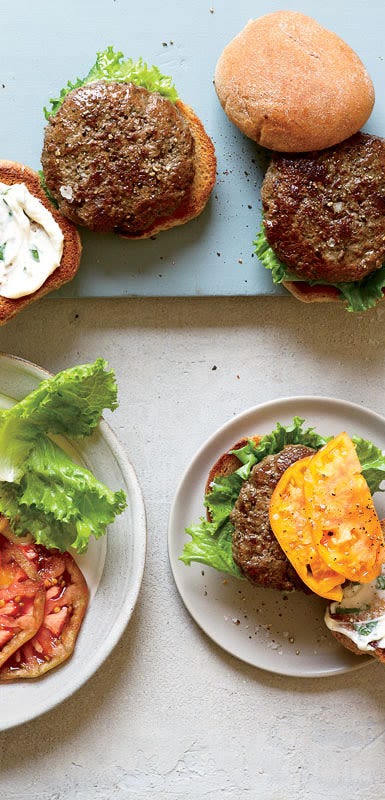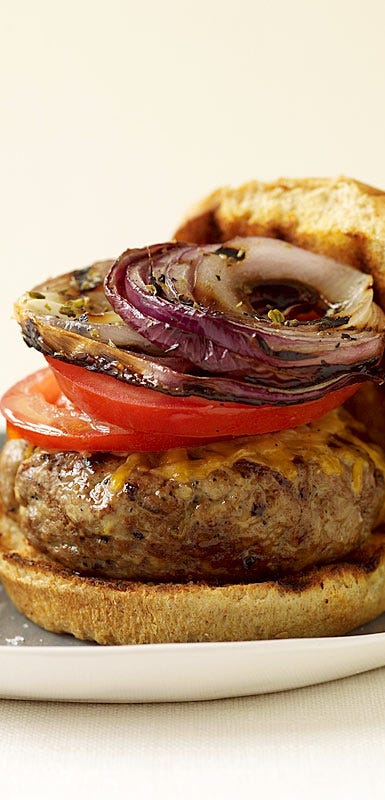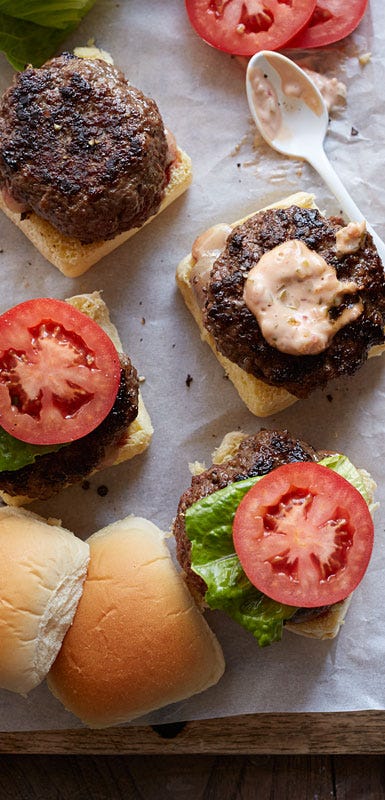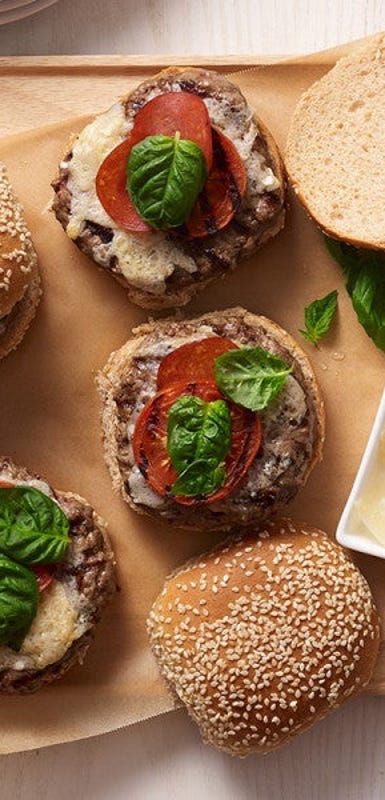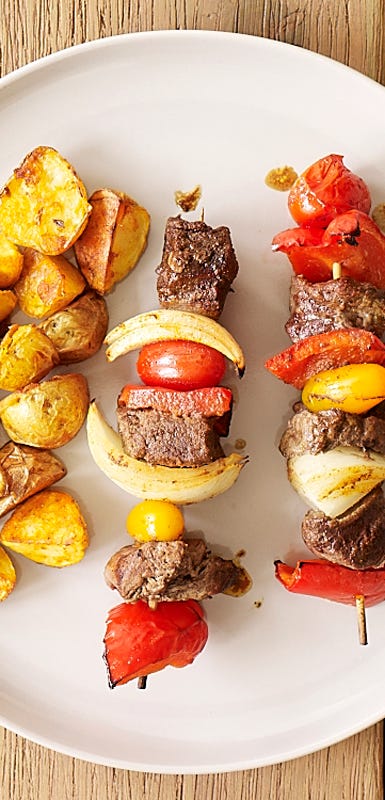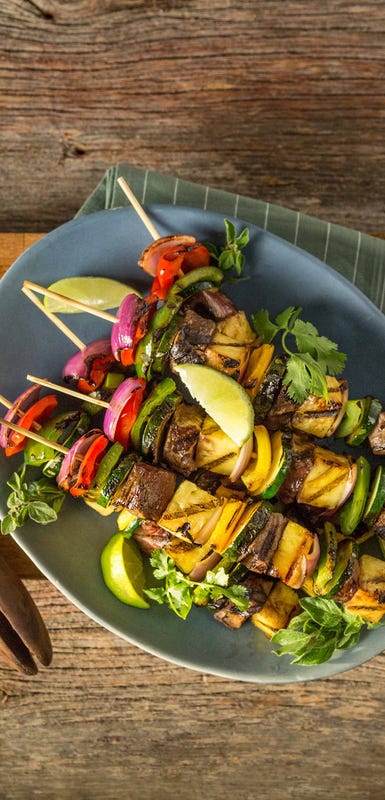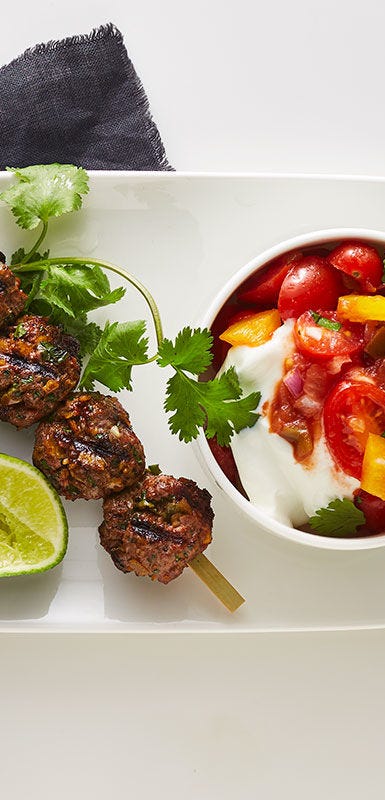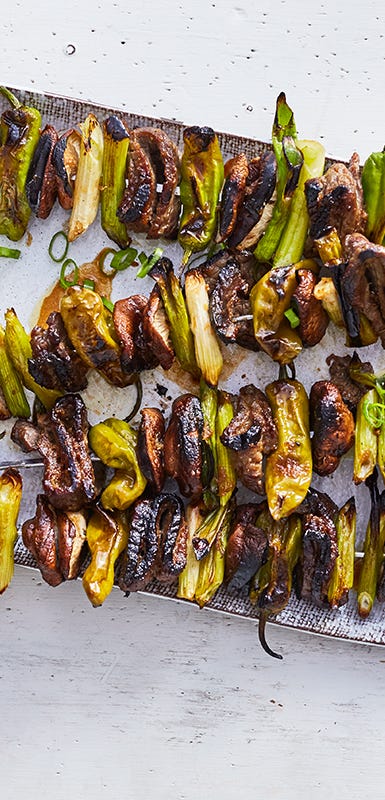16 Points®-friendly ways to grill beef

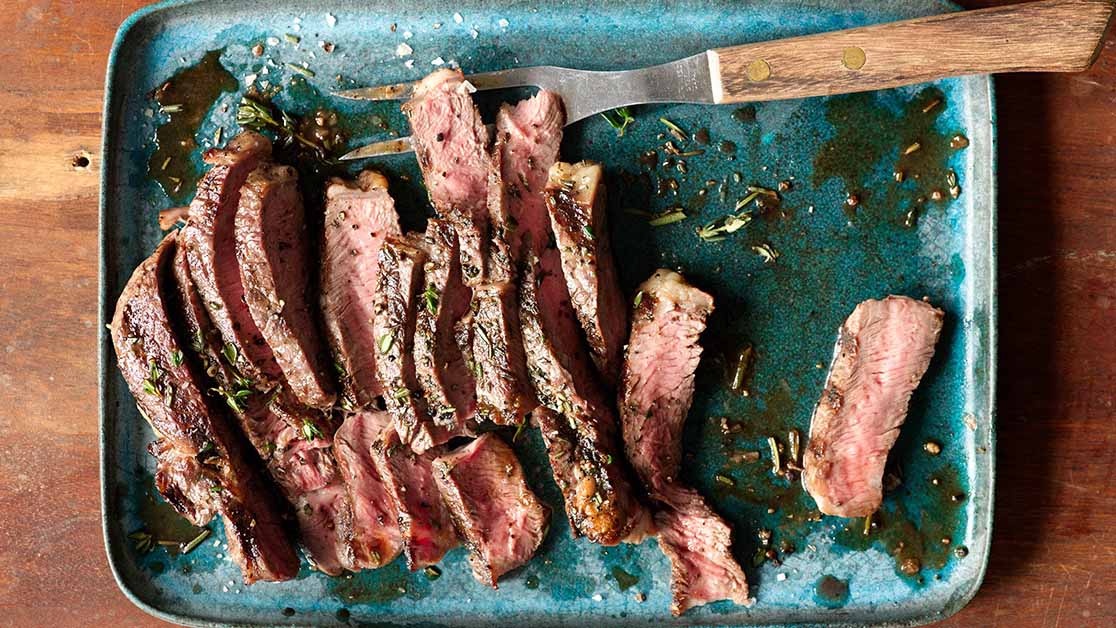
Meat lovers, this one’s for you. From herbed Cuban-style flank steak and stacked cheeseburgers to a classic T-bone slathered with tangy barbecue sauce, we’ve rounded up all the recipes and tips you need to beef up your warm-weather grilling repertoire. Check out WW’s expert advice on grilling beef, browse our meaty favourites below, and turn up the flames for a truly mouthwatering meal.
Tips for grilling beef
Be gentle with burger meat
A light touch is best when hand-shaping patties. Overworking ground meat with aggressive kneading can result in a burger that’s tough, crumbly, and dry. Instead, use your hands to gently incorporate seasonings into the meat until just combined, then form discs with just enough compression for them to hold their shape.
Don’t force the sizzle
Once your meat is on the grill, resist the temptation to press it against the grates—the resulting sizzle, satisfying though it may be, would be the sound of your meat drying out. The better approach: Let the grill do its job. Keep fussing to a minimum so meat can sit over the heat and develop those coveted char marks without losing its juicy flavour. Flip once (twice at most).
Know the facts on temperature
When it comes to beef, “done” means different things to different people. To minimize the risk of foodborne illness, food-safety experts recommend using a food thermometer to measure internal temperature. Raw ground beef should be cooked to a minimum internal temperature of 160°F, the U.S. Department of Agriculture advises, while all other cuts of raw beef should be cooked to at least 145°F. These temperatures, which kill many bacteria that can make people sick, will put your burgers and steaks in the medium-to-well-done zone. You decide what’s best for you, of course. (Sometimes only a rare steak will satisfy.) Just know that rarer can mean riskier.
Let it rest
Granted, it’s hard not to sink your teeth into a mouthwatering burger the second it comes off the grill. But you’ll love your meal even more if you let the burger briefly rest on a platter first. As the meat stands away from heat, its fibres reabsorb the juices they expelled during the cooking process. Just 1 or 2 minutes of rest for burgers—and 3 to 5 minutes of rest for steak—can help make every bite more flavourful.
Slice steaks strategically
The tenderness of a steak is partly determined by how you cut it. Before putting your knife to work, look for the meat’s muscle fibres—they’ll appear as long lines throughout the steak. Then, slice the steak perpendicular to those lines. Cutting across the grain to shorten the muscle fibres gives your meat the tenderest possible chew.
Our best grilled burgers, steaks, and beef kebabs
--
Leslie Fink, MS, RD, has worked on the WW editorial team for more than 21 years. She plays a key role in food, recipe, and program content, as well as product partnerships and experiences.

